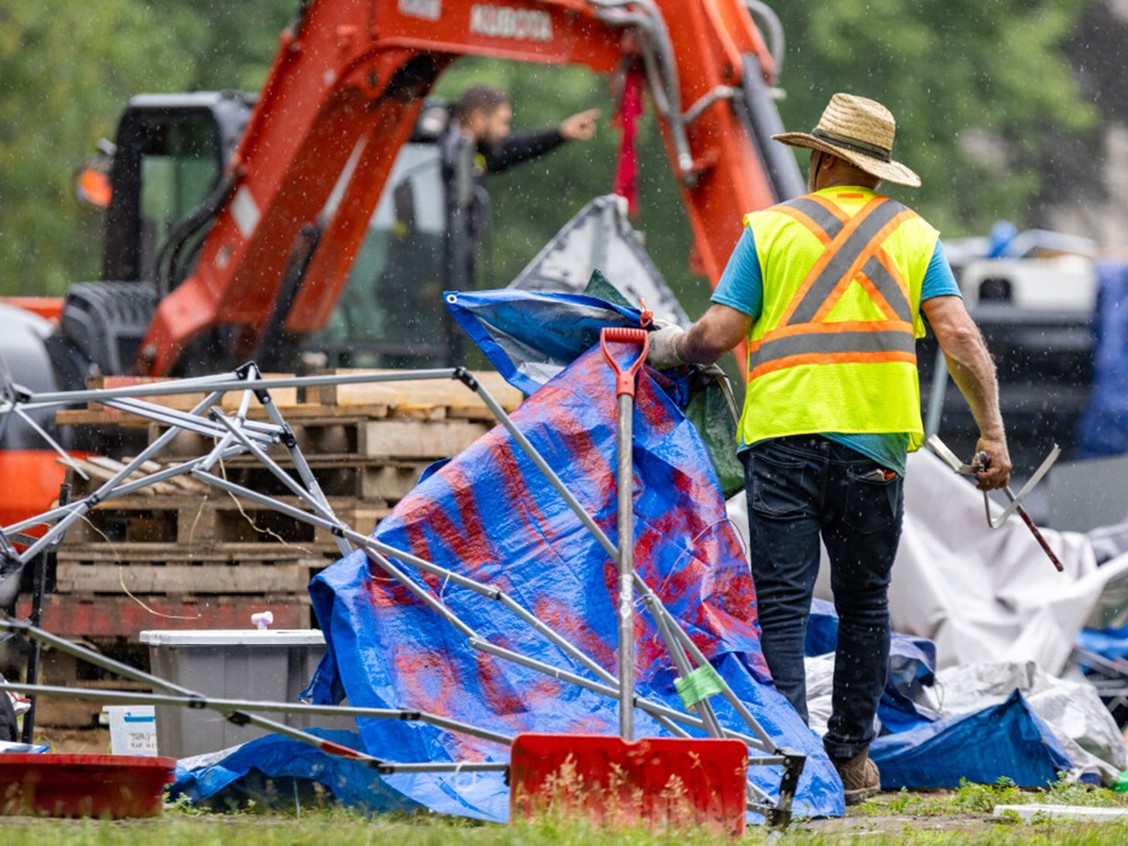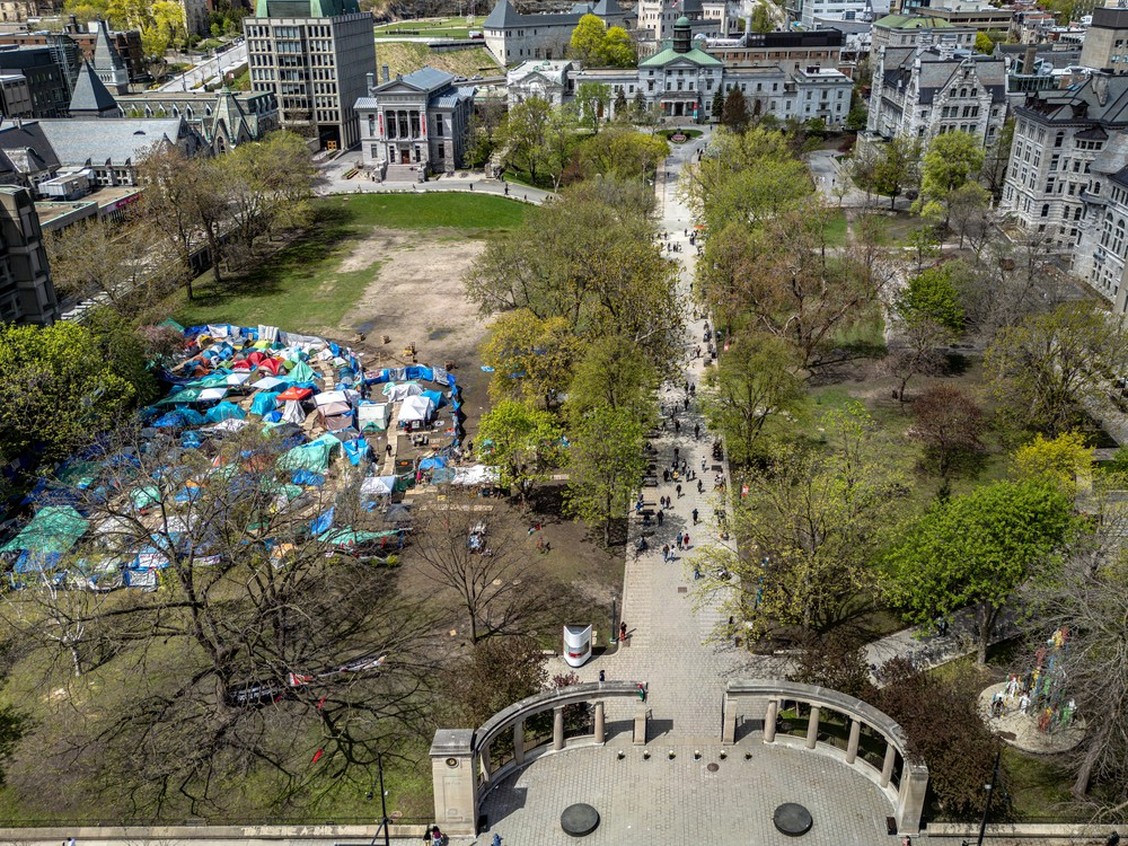Although Passive in Response, a Majority of Canadians Support Removal of Pro-Hamas Encampments at Canadian Universities
"For many, they had already made their point, and/or they were not going to achieve their objective, however it was understood -- which was also unclear to many Canadians.""[The protesters' goals and objectives] are being seen as increasingly unclear.""For many, the underlying issue was a matter of trust, and the 55-plus group trusts the university leaders to a much greater extent than they did the encampment organizers.""[A] considerable [49 percent of students in the survey said they didn't know or preferred not to answer] potentially suggesting a high degree of stigma associated with taking a position on either side of this."Jack Jedwab, president, Association for Canadian Studies

According
to a new national poll conducted by Leger for the Association for
Canadian Studies, most Canadians support police having taken down
illegal, disruptive pro-Palestinian encampments at Canadian
universities. Some 70 percent of Canadians surveyed were in agreement
that officials were correct in having police and private security
dismantle an encampment at McGill University and at downtown Victoria
Square in Montreal.
On
the morning of July 5, police in riot gear began to dismantle the camp
at Victoria Square, mere days following the province's public security
minister accusing the city in public of being too passive with the
presence of the protesters in the public arena. Once Victoria Square was
cleared of the encampment, in another five days police and private
security firm agents were at McGill using excavators and front-end
loaders to disassemble about a hundred tents and tarps at the McGill
encampment after over two months of legal battles, counter protests,
accusations of antisemitism and concerns over security risks.
Twice, Quebec courts refused to issue an injunction against the encampments. Finally, flyers promoting a "revolutionary summer program",
ostensibly to 'educate' those not sufficiently imbued with hatred for
Jews and Israel, who needed an additional propaganda boost to venerate
the terrorist group Hamas. The flyers featured photographs of
keffiyeh-wrapped Palestinian fighters with raised rifles.
Members
of the Divest for Palestine Collective had planned and organized the
Victoria Square camp, in an effort to apply pressure on Quebec's pension
fund manager to sever links with Israeli institutions that the group
accused of being complicit in the conflict in Gaza between Hamas and
Israel. Spurred by encampments set up at universities in the United
States, the McGill University encampment was the first to appear in
Canada. Quickly followed by over a dozen other Canadian universities,
including University of British Columbia, University of Toronto and
University of Alberta.
 |
Demands
were noisily issued that universities cut ties with Israel, end all
collegial arrangements with Israeli universities and divest from any
companies or corporate interests that supply arms to Israel, or which
profit from the war with Hamas. Those protesters enjoyed the support of
19 percent of Canadians, according to earlier Leger polling. McGill and
Victoria Place, according to Jack Jedwab of the Association for Canadian
Studies were seen as valid proxies for public opinion on other
encampments.
A
majority of Canadians over -- 69 percent -- agreed with their removal.
Twice as many students favoured removal of the encampment of those
expressing an opinion, while 40 percent agreed that police were right to
take down encampments, while 18 percent disagreed. 42 percent of
students responded they preferred not to answer, or just did not know.
The degree of opposition to the encampments with just 13 percent of
Canadians of all ages polled disapproving of their removal suggested
protesters increasingly perceived them as disruptive to student life and
the broader community.
The encampment at McGill was described by its vice chancellor Deep Saini as a "heavily fortified focal point for intimidation and violence" organized largely by outsiders who used tactics designed to "threaten, coerce and scare people". Support for encampment removal was highest among Canadians aged 55 and older, with 62 percent reporting they "strongly agree" officials were correct for police and private security to take down the McGill tents.
Nearly half (48 percent)
of 18- to 34-year-olds strongly or somewhat agreed with the removal of
the McGill encampments, even as 24 percent strongly disagreed. Of that
age group, 27 percent said they did not know or preferred not to answer.
 |
Labels: Agreement High, Anti-Israel, Canadian University Encampments, Forced Removal, Leger Poll, Pro-Hamas

<< Home